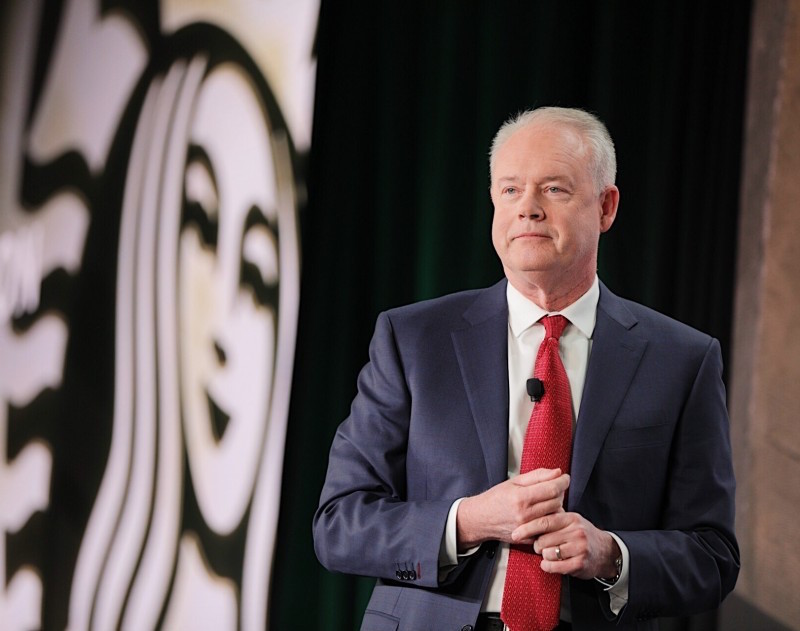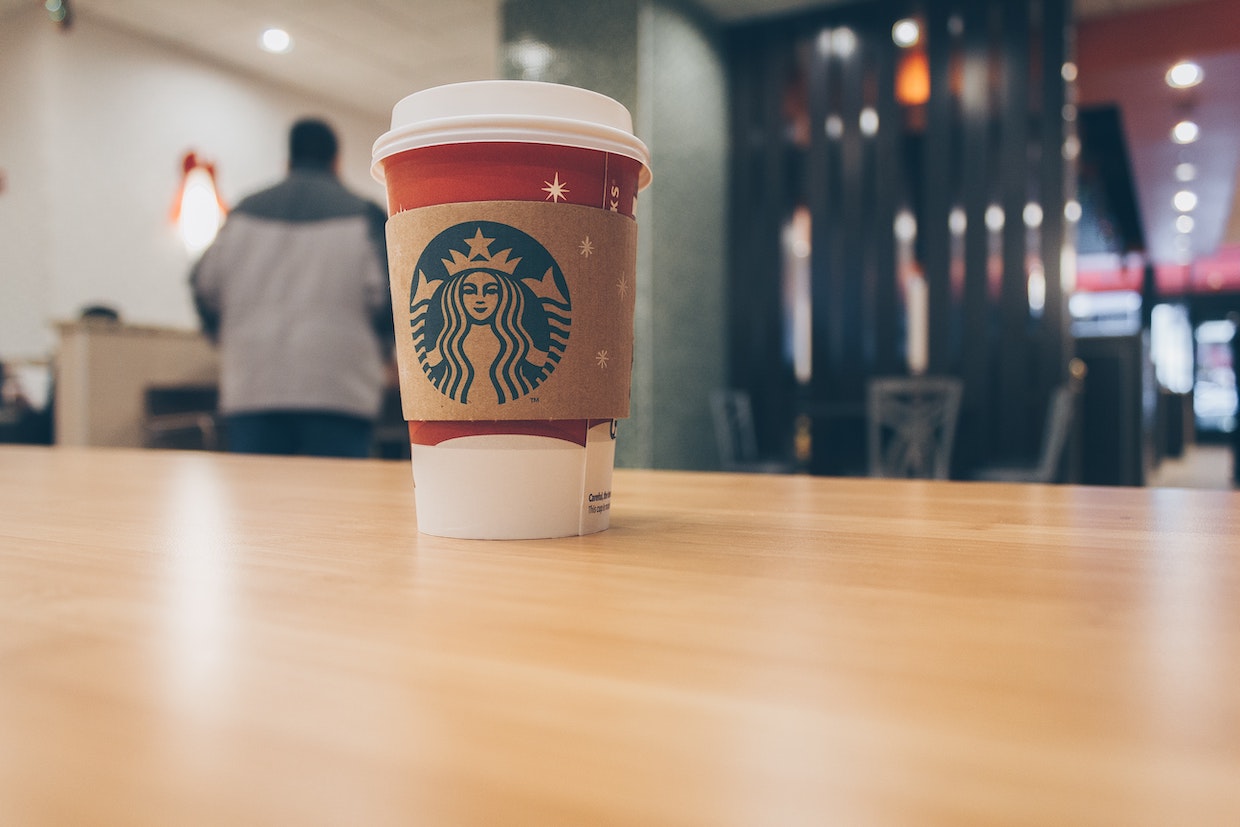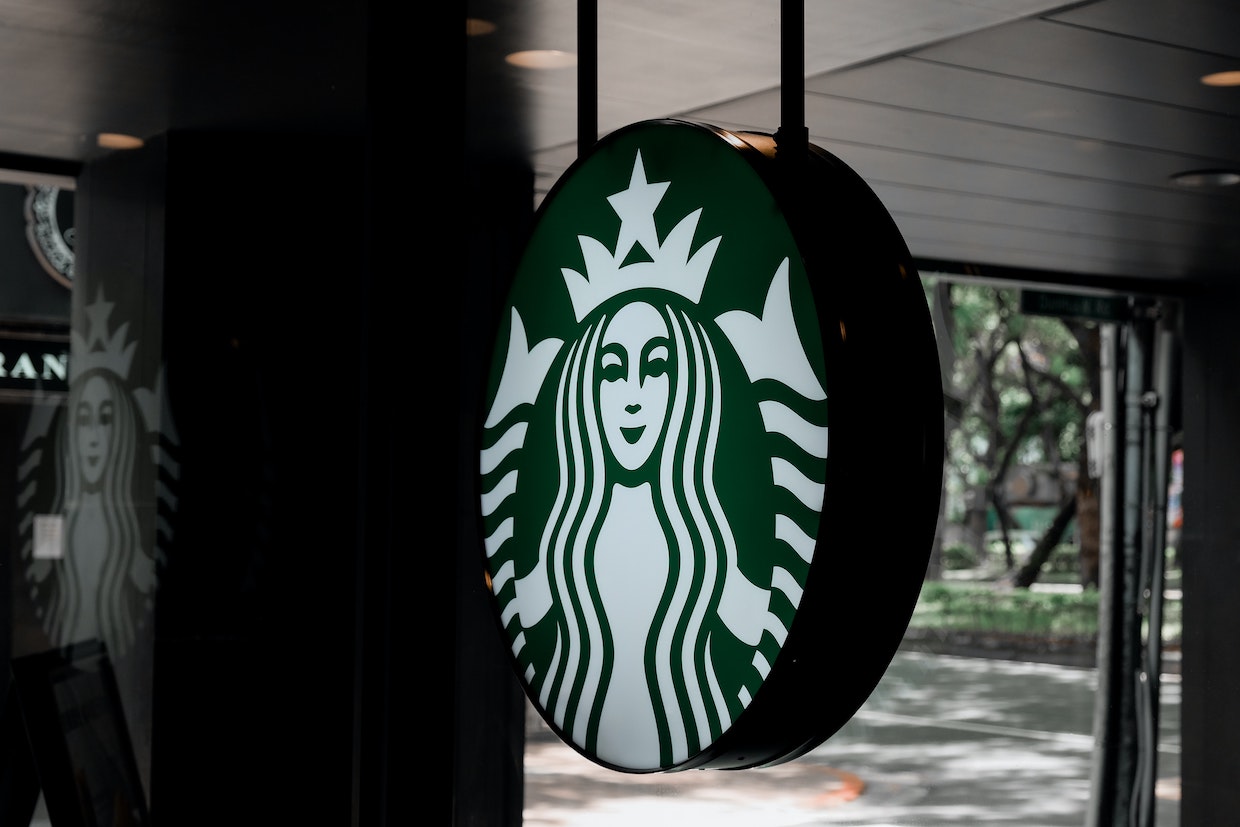
Starbucks CEO Kevin Johnson at the company’s biennial investor conference in New York City in 2018. Starbucks Newsroom 2018 photo.
Global coffee giant Starbucks has announced that president and CEO Kevin Johnson plans to retire next month, nearly five years to the day since taking over for former president and CEO Howard Schultz, who is returning on an interim basis.
The announcement came just prior to the company’s annual shareholder meeting taking place today. Johnson has been with Starbucks for the past 13 years.
Schultz, a business celebrity who helped grow the Starbucks brand globally before flirting with a 2020 presidential bid following his 2017 retirement, will be occupying the Seattle company’s top executive spot for a salary of $1 until a permanent replacement is found.
Johnson’s retirement comes against the backdrop of widespread unionization efforts throughout the Starbucks retail network. A monumental National Labor Relations Board case last year in Buffalo opened the door to the viability of individual store unionizations. Since then, employees from scores of Starbucks stores throughout the United States have petitioned for unionization.
In an announcement this released this morning, Johnson said that he signaled to the company’s board of directors a year ago that he might be retiring once the “global pandemic neared an end.”
“I have enjoyed every minute of the job and am proud of what we have achieved together,” Johnson said in the announcement. “It has been an honor to serve the 400,000 Starbucks green apron partners around the world and I want to thank them for their service, resilience and optimism.”
Johnson’s total compensation in 2021 was $20.4 million, according to the company’s SEC filings.
Related Reading
- Starbucks Opens Roasting-Focused Coffee Experience Center in Bali, Indonesia
- Arizona Starbucks Workers Vote to Unionize as Broader Labor Movement Heats Up
- Report: Many of World’s Largest Coffee Roasters Not Able to Ensure Living Income for Producers
Beyond the responses to unionization efforts and the COVID-19 pandemic, Johnson’s tenure saw several significant strategic shifts for Starbucks.
Under Johnson’s watch, Starbucks completed six of the massive Reserve Roastery projects already underway, including gleaming coffee palaces in New York City; Tianjin, China; Milan, Italy; Shanghai; Chicago; and Tokyo.
However, in 2019, Johnson announced plans to curtail the previously planned growth for the company’s more upscale Reserve coffee bar concept, while focusing more on delivery and quick-service formats.
In 2018, the company reached a $7.15 licensing and product distribution deal with global food giant Nestlé, pitched by the companies as a “global alliance.” The company has also made significant investments in China.
Also in the Johnson tenure, Starbucks amplified its focus on quick-service-retail and convenience through the continued development of its customer apps and online ordering, a partnership with Uber Eats and other third-party providers. The company also revamped its U.S. retail growth strategy, with plans to shutter traditional brick-and-mortar stores in favor of to-go kiosks in urban areas and drive-throughs in the suburbs.
More recently, Starbucks became one of the first major U.S. corporations to suspend its business operations in Russia in response to the attack on Ukraine.
Does your coffee business have news to share? Let DCN’s editors know here.
Nick Brown
Nick Brown is the editor of Daily Coffee News by Roast Magazine.








Comment